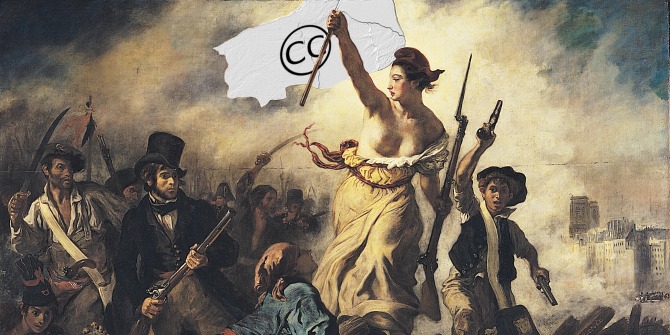
 Why does public engagement matter? Why should it matter and how can it be made to matter more? These are the questions Mark Carrigan and Nick Mahony explore by looking at the context of contemporary higher education where technology, institutional pressure, and an increasing diversity of engagement initiatives are emerging, within academia and beyond.
Why does public engagement matter? Why should it matter and how can it be made to matter more? These are the questions Mark Carrigan and Nick Mahony explore by looking at the context of contemporary higher education where technology, institutional pressure, and an increasing diversity of engagement initiatives are emerging, within academia and beyond.
Social scientists and others now face increasing demands for public engagement. In the UK these demands have most recently emerged in the context of the ‘impact’ agenda but also spring from a range of other sources including academic colleagues, who advocate the wider uptake of participative and engaged research approaches; and campaigning and advocacy organisations (including those currently attempting to mobilise academics and others to publicly resist or develop alternatives to the current tranche of higher education and funding reforms); but also the range of organisations, groups and stakeholders who associate with researchers on a more ongoing basis and call upon social researchers to support their work developing alternative political and public futures.

However there are a range of questions concerning the intersection between the institutionalization of public engagement and the commitments of ‘engagers’ and their external affiliates which would benefit from further explanation. Who are the publics of contemporary public engagement? Where are the resources to be found to undertake experimental participative engagement projects? What motivates engagement? Why does it matter to those undertaking it? What are the longer term consequences for the social sciences of increasing demands for engagement and public-ness?
In the 2004 Presidential Address for the American Sociological Association in which he put forward the notion of Public Sociology, Michael Burawoy reflected on how the tension between public structures and private motivations plays itself out in the unfolding of careers within the academy:
The original passion for social justice, economic equality, human rights, sustainable environment, political freedom or simply a better world, that drew so many of us to sociology, is channeled into the pursuit of academic credentials. Progress becomes a battery of disciplinary techniques—standardized courses, validated reading lists, bureaucratic ranking intensive examinations, literature reviews, tailored dissertations, refereed publications, the all-mighty CV, the job search, the tenure file, and then policing one’s colleagues and successors to make sure we all march in step. Still, despite the normalizing pressures of careers, the originating moral impetus is rarely vanquished, the sociological spirit cannot be extinguished so easily.
The tension here is surely one which applies more broadly than sociology and sociologists. Burawoy’s concern was with the legacy of professionalisation which, despite the many gains accrued through it, nonetheless created a need for “a systematic back-translation, taking knowledge back to those from whom it came, making public issues out of private troubles” in a way which would revitalise that moral impetus. It is in this sense that we would like to explore the intersection between institutionalisation and engagement in the context of contemporary higher education. Why does public engagement matter? Why should it matter and how can it be made to matter more?
There are three features of our emerging context which simultaneously add to the complexity and importance of these questions. The first is the emergence of communications technology which is “interactive, instantaneous, global, low-cost, and fully searchable”. Whether or not this constitutes the ‘social media revolution’ predicted by the paper’s authors is moot. It is inarguably a game changing addition to the ‘toolbox’ available for public engagement. The second feature is the increasing institutional pressure, emerging as part of a deliberate attempt to restructure higher education under the banner of ‘reform’, to demonstrate impact. This institutional agenda is reflected by, though also often in tension with, an uneven and diverse but nonetheless significant move from the ‘bottom up’ which has sought in different ways to rethink the public role of disciplines. The third feature of our emerging context is an increasingly lively and global conversation about what public-ness means today. It is by now familiar that the contemporary context is one marked by multiplying crises, occupations, institutional break-downs; growing levels of estrangement from traditional forms of belonging and governance; as well as intensifying conflicts over the marketization of public life. An increasing number and diversity of participatory public engagement initiatives are also emerging at this time, within academia as well as across many other domains beyond it. Such initiatives are significant not just because many are emerging in response to these developments but also because they open out spaces for new ways of being public and for alternative public futures.
What interests us is the point of intersection between these dynamics: the on-going project of institutional restructuring; the proliferation and diversity of demands for public engagement; and, the increasingly widely distributed and participatory conversation that is currently taking place about what is and should be public. Our upcoming event attempts to explore these issues by bringing together a diverse group of academics who, in different ways, have undertaken work which addresses these issues in a practical sense. We believe that the terrain of engagement has changed rapidly in an extremely short space of time and that the (understandable) tendency for debates about ‘impact’ and ‘public engagement’ to become polarised has distracted from discussion of the theoretical and practical significance of this novelty. Our event will explore some of the challenges, new possibilities, forms of politics and debates about public-ness that are opening out in the current situation. In doing so we also intend to reflect on how a critical social science can inform and shape the agenda of public engagement in a post REF 2014 environment.
For more on the event Social Science and the Politics of Public Engagement to be held at the Open University Camden Centre on 28 January from 6:00 – 8:00 pm, please see here.
Note: This article gives the views of the author, and not the position of the Impact of Social Science blog, nor of the London School of Economics. Please review our Comments Policy if you have any concerns on posting a comment below.
Mark Carrigan is a sociologist and academic technologist based at the University of Warwick. He edits the Sociological Imagination and co-convenes the BSA Digital Sociology and BSA Realism and Social Research groups. He is a research associate at the LSE’s Public Policy Group and was formerly managing editor of the LSE’s British Politics and Policy Blog. His research interests include sociological theory, methodology, biographical methods, longitudinal qualitative research, asexuality, sexual culture and digital sociology.
Dr. Nick Mahony is Research Fellow at the Open University and currently leads Creating Publics project, which aims to research, pilot and support collective thinking about new and emerging ways of mediating the publics of public engagement with social science research. The Creating Publics project has emerged out of conversations between members of the Publics Research Programme, which was established in 2010 with support from the Open University’s Centre for Citizenship, Identities and Governance. Visit the project blog or get in touch with Nick (nick.mahony@open.ac.uk) for further details about the project, project resources or details of past and future Creating Publics events.








Thank you for a very thought provoking piece. The issues that you mention here; in your words ‘the ongoing project of institutional restructuring’ and ‘demands for public engagement’ are important issues to debate, but this debate should not be restricted to academic social scientists. Academic social scientists are prepared to take their livelihoods, careers, reputations etc from society but that some (not all) can’t see the necessity to contribute something back to all but an exceedingly narrow proportion of that society. To me this is apparent through the often vitriolic reactions that I have witnessed by academic colleagues to the idea of public engagement or to the ‘impact agenda’. Yet they can’t seem to see the irony of wanting to take the public (or some element thereof) as their object of study, and only wanting to talk about this to their own exclusive club of like-minded academic colleagues. The unthinkable alternative would be to go out into the big wide world, and have to talk to members of the tax-paying public about what you’ve chosen to do in a job or a project which they have effectively paid for and try to convey to them (without resorting to exclusionary tactics of academic discourse) why your research findings are likely to benefit them.
I’m caricaturing, of course, but there is a germ of truth in some of the more reactionary attitudes I’ve encountered. And for many members of the public it is insulting and arrogant. So, instead of saying ‘why don’t we have a discussion about how public engagement is yet another demand for social scientists’ perhaps the question ought to be ‘why don’t we engage with the public more as a central part of what we do, so that both we and they can develop a more informed understanding of what the other is about.’ And who knows that might even help to make the case for the longer term health and vitality of the social sciences.